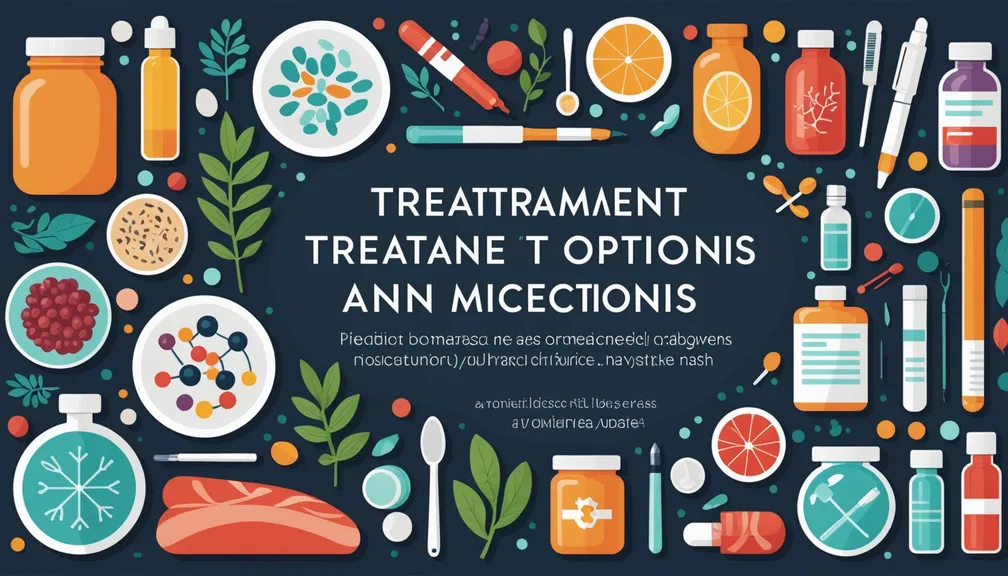Treatment Options: Medications, Therapies, and Lifestyle Changes
Managing autoimmune rare diseases often requires a multifaceted approach. Understanding the various treatment options available can empower you and your loved ones to make informed decisions and improve your quality of life. This lesson covers the primary categories of treatment: medications, therapies, and lifestyle changes.
Medications
Medications play a crucial role in controlling autoimmune rare diseases by suppressing the immune system, reducing inflammation, and managing symptoms. Here are the main types of medications used:
1. Immunosuppressants
These drugs help reduce the activity of the immune system to prevent it from attacking the body’s own tissues. - Common Immunosuppressants: - Methotrexate: Often used for rheumatoid arthritis and other autoimmune conditions. - Azathioprine: Used in autoimmune hepatitis and lupus. - Cyclophosphamide: Typically used for severe cases, such as lupus nephritis.
2. Corticosteroids
Corticosteroids are powerful anti-inflammatory medications that can quickly reduce inflammation and suppress the immune response. - Common Corticosteroids: - Prednisone: Widely used for various autoimmune diseases. - Methylprednisolone: Often administered intravenously for rapid effect.
Important Notes: - Side Effects: Long-term use can lead to weight gain, osteoporosis, high blood pressure, and increased risk of infections. - Management: Doctors aim to use the lowest effective dose to minimize side effects.
3. Biologics
Biologics are a newer class of medications that target specific parts of the immune system. - Common Biologics: - TNF Inhibitors (e.g., Infliximab, Etanercept): Used for rheumatoid arthritis and ankylosing spondylitis. - Interleukin Inhibitors (e.g., Tocilizumab): Used for conditions like rheumatoid arthritis. - B-cell Inhibitors (e.g., Rituximab): Used for certain types of vasculitis.
Benefits: - Can be highly effective with targeted action. - Often useful for patients who do not respond to traditional immunosuppressants.
4. Pain Relievers and Anti-Inflammatories
These medications help manage pain and reduce inflammation associated with autoimmune diseases. - Common Options: - Nonsteroidal Anti-Inflammatory Drugs (NSAIDs): Such as ibuprofen and naproxen. - Acetaminophen: Useful for pain relief without reducing inflammation.
Therapies
Therapies complement medications by addressing specific symptoms, improving physical function, and enhancing overall well-being.
1. Physical Therapy
- Purpose: To maintain and improve physical function, strength, and mobility.
- Common Techniques:
- Exercises: Tailored to your abilities and needs.
- Manual Therapy: Techniques to improve movement and reduce pain.
2. Occupational Therapy
- Purpose: To help you manage daily activities and maintain independence.
- Common Strategies:
- Adaptive Techniques: Learning new ways to perform tasks.
- Assistive Devices: Using tools to make activities easier.
3. Psychotherapy and Counseling
- Purpose: To address the emotional and psychological impact of living with a chronic disease.
- Benefits:
- Stress Management: Techniques to handle stress and anxiety.
- Support: Providing a space to discuss challenges and feelings.
4. Complementary Therapies
These therapies can enhance your overall treatment plan. - Examples: - Acupuncture: May help reduce pain and improve well-being. - Massage Therapy: Can alleviate muscle tension and promote relaxation. - Yoga and Meditation: Aid in stress reduction and improve flexibility.
Lifestyle Changes
Adopting certain lifestyle changes can significantly impact the management of autoimmune rare diseases. These changes support overall health and can enhance the effectiveness of medical treatments.
1. Diet and Nutrition
- Balanced Diet: Emphasize fruits, vegetables, lean proteins, and whole grains.
- Anti-Inflammatory Foods: Incorporate foods like fatty fish, nuts, and leafy greens to help reduce inflammation.
- Avoid Triggers: Identify and limit foods that may exacerbate symptoms, such as gluten or dairy, if sensitive.
Tips: - Stay Hydrated: Drink plenty of water throughout the day. - Regular Meals: Maintain consistent meal times to support energy levels.
2. Exercise
- Benefits: Improves strength, flexibility, and cardiovascular health; reduces fatigue.
- Recommended Activities:
- Low-Impact Exercises: Such as walking, swimming, or cycling.
- Strength Training: To maintain muscle mass.
- Stretching: To enhance flexibility and reduce stiffness.
Guidelines: - Start Slowly: Begin with gentle exercises and gradually increase intensity. - Listen to Your Body: Rest when needed to avoid overexertion.
3. Stress Management
Chronic stress can worsen autoimmune symptoms. Effective stress management strategies include: - Mindfulness Meditation: Helps in staying present and reducing anxiety. - Deep Breathing Exercises: Can calm the nervous system. - Hobbies and Leisure Activities: Engage in activities you enjoy to relax and unwind.
4. Sleep Hygiene
Quality sleep is essential for healing and overall health. - Tips for Better Sleep: - Consistent Schedule: Go to bed and wake up at the same time each day. - Create a Restful Environment: Keep your bedroom dark, quiet, and cool. - Limit Screen Time: Reduce exposure to screens before bedtime to improve sleep quality.
Working with Healthcare Professionals
Collaborating with a team of healthcare professionals can ensure comprehensive care and effective management of your autoimmune rare disease.
1. Types of Specialists
- Rheumatologist: Specializes in autoimmune and musculoskeletal diseases.
- Immunologist: Focuses on the immune system and related disorders.
- Neurologist: For autoimmune diseases affecting the nervous system.
- Gastroenterologist: For autoimmune conditions affecting the digestive system.
- Dermatologist: For skin-related autoimmune issues.
2. Supportive Health Professionals
- Primary Care Physician: Coordinates overall healthcare and referrals.
- Physical Therapist: Assists with physical rehabilitation and mobility.
- Occupational Therapist: Helps with daily living activities and adaptations.
- Dietitian/Nutritionist: Provides personalized dietary plans.
- Mental Health Counselor or Psychologist: Offers emotional support and coping strategies.
3. Building a Care Team
- Open Communication: Share all symptoms, concerns, and treatment experiences with your team.
- Regular Appointments: Keep consistent check-ins to monitor progress and make necessary adjustments.
- Advocate for Yourself: Be proactive in seeking information and expressing your needs.
By understanding and utilizing the various treatment options available—medications, therapies, and lifestyle changes—you can take an active role in managing your autoimmune rare disease. Collaborating with healthcare professionals and making informed decisions will contribute to improved health outcomes and a better quality of life.






